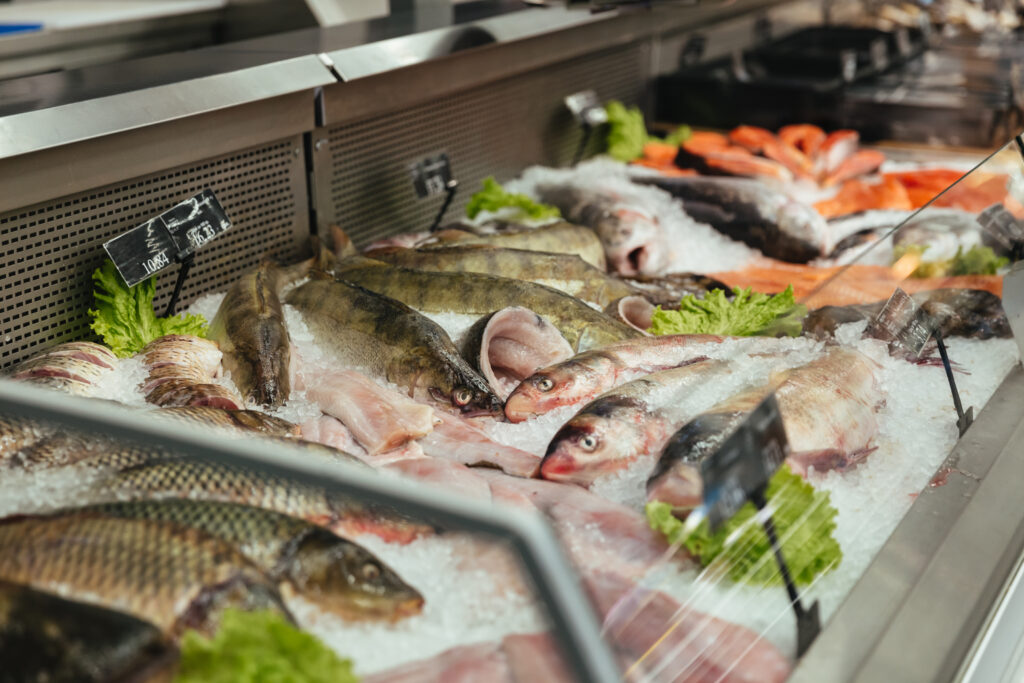
Earth Day reminds us to make choices today that will sustain us going forward. Some of these choices relate to how we’re protecting our seas and fish supply. Several oversight organizations and best practice guidelines exist to help protect these valuable resources. Keep reading to learn more about these organizations and what to ask your local fishmonger.
Global Sustainable Seafood Initiative
The Global Sustainable Seafood Initiative (GSSI) is a public-private partnership that focuses on preserving our seas. It works to implement sustainable seafood goals set by the United Nations (UN) and Food and Agriculture Organization (FAO). Specifically, GSSI ensures that its proud partner retailers adhere to the FAO Code of Conduct for Responsible Fisheries. Look for the GSSI certification at your local seafood counter.
Trace Register
Find out if your local market partners with Trace Register. Trace Register works with retailers and food companies to track their seafood’s entire journey from sea to seafood counter. This critical tool documents the fish and seafood suppliers, as well as how and where they caught or farmed the seafood. It also ensures that suppliers follow strict safety and sustainability rules throughout the process. Perhaps most importantly, Trace Register can quickly address any issues that arise before that fish makes it to market.
Best Aquaculture Practices
To feed our growing population, we must embrace advances in aquaculture (fish farming). In response to this growing need, the Global Seafood Alliance created a Best Aquaculture Practices (BAP) certification. The BAP certification assures you that the fish and seafood you’re consuming was harvested with safe and sustainable aquaculture practices. Visit their website to find out if your retailer partners with BAP.
Ocean Disclosure Project
Ask your fish market if they partner with the Ocean Disclosure Project (ODP). The Sustainable Fisheries Partnership launched ODP in 2015 for seafood stakeholders to share their sourcing, sustainability, and environmental protection efforts. If your retailer partners with ODP, they’re committed to publicly disclosing their sourcing and traceability information. They also voluntarily provide complete transparency about their sustainability practices.
Seafood Task Force
The Seafood Task Force’s focus is supply chain oversight of the shrimp and tuna industry. Specifically, the task force looks for potential illegal, unreported, and unregulated fishing (IUU). IUU can have many negative social and environmental impacts, including unsafe labor practices, overfishing/depleting the supply, and harming the ecosystem. Retailers and suppliers that partner with the Seafood Task Force commit to a code of conduct to prevent IUU.
Global Tuna Alliance
Lastly, find out if your fish counter partners with the Global Tuna Alliance (GTA). This organization ensures that tuna is caught safely with the least impact on the sea, the supply, and fishermen. In 2021, the GTA launched a five-year strategy with significant goals to improve transparency and traceability, sustainability, and social responsibility. 32% of the world’s tuna supply currently passes through GTA partners. And industry experts predict that this number will rise in the coming years.
Look for Guiding Stars at your seafood counter too! When you choose Guiding Stars earning fish and seafood, you consume significant amounts of vitamins, minerals, and omega fats. And you limit your intake of sodium and other dietary components to limit. It’s a win-win!